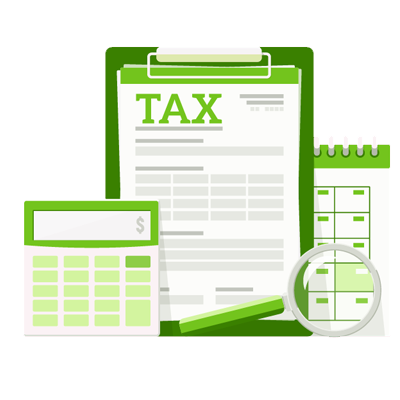
Payroll Accounting
I don’t really care about money. I find money boring and accounting boring, so I’m probably not going to ever make a lot of money.
– Juliana Hatfield
In this unit, we will be discussing many terms that involve dealing with the financial aspects of your business. We will also be discussing the accounting methods and terms used in reference to your employees, by briefly going over the following terms: gross wages, net wages, employee tax withholdings, employer tax expenses, salary deferrals, employee payroll, employee benefits, tracking accrued leave, and government payroll returns and reports. After this unit, you will be familiar with all of the terms listed above and possibly ready to hire new employees. So look at it like this, you can spread joy to a few of the unemployed hopefuls out there, given the state of our current economy. Oh Joy!
Gross Wages
The amount of compensation paid to employees for work before taxes have been removed. The gross wage is based on the number of hours worked multiplied by the rate of pay per hour. Hourly wages are usually paid to those in non-managerial positions as well as other positions.


Net Wages
The amount of compensation paid to employees for work after taxes have been removed. The net wage is based on the number of hours worked multiplied by the rate of pay per hour (gross wage) minus taxes and other fees. Hourly wages are usually paid to those in non-managerial positions as well as other positions.
Employee Tax Withholding’s
The tax amount deducted each time an employee is paid. Law requires that each taxpayer pay their estimated income tax throughout the year. This withholding tax is usually the responsibility of the employer before rendering payment to an employee. The function of withholding taxes is to allow for proportionate amounts of tax payments to the IRS rather than a lump sum. This method can make the IRS collection less noticeable and therefore less “painful” for some.


Employer Tax Expenses
Several payroll taxes are levied by both state and federal government. Some of these taxes will be paid by the employees and are known as employee tax withholdings. In addition to these withholdings, employers must pay additional taxes which add an employer tax expense to the cost of labor. There are three general forms of such taxes: Social Security tax, State Unemployment tax (SUTA), and a Federal Unemployment tax (FUTA).
Salary Deferrals
A provision within a retirement plan approved and sponsored by an employer that allows eligible employees to elect to have a fraction of their compensation to be deducted and contributed to the employer’s retirement plan. This deferral often occurs before taxes are deducted. Such employer-sponsored retirement plans include 401(K) plans, 403(b) arrangements, and 457 plans.


Employee Payroll
The wages paid to any employee who performs work for an entity and is paid directly by that entity is an employee of that entity and is on its payroll. It is important for a business to keep very accurate records of all wages paid to employees mainly for tax purposes. Whether the pay occurs weekly, monthly, or just periodically, it is all considered part of an employee payroll.
Employee Benefits
Employer-provided compensation received by employees in addition to wages or salary. Such compensation includes but is not limited to health care, child care, and life insurance. These benefits, also known as fringe benefits are meant to increase the economic security of employees.

Tracking Accrued Leave
Leave that has been earned and taken should be tracked at the end of each month. Vacation days that have not yet been taken are a liability to the business until they are taken. A business should keep accurate records of all days taken off and/or vacation days fulfilled by its employees.
Government Payroll Returns/Reports
Payroll returns are those that are required to be submitted with one’s payroll tax. It must be submitted within a certain timeframe known as the return period.


Lesson Seven: Review
You should now be familiar with a few of the general accounting terms most often associated with businesses and their employees. Remember the basics of: gross wages, net wages, employee tax withholdings, employer tax expenses, salary deferrals, employee payroll, employee benefits, tracking accrued leave, and government payroll returns/reports.





